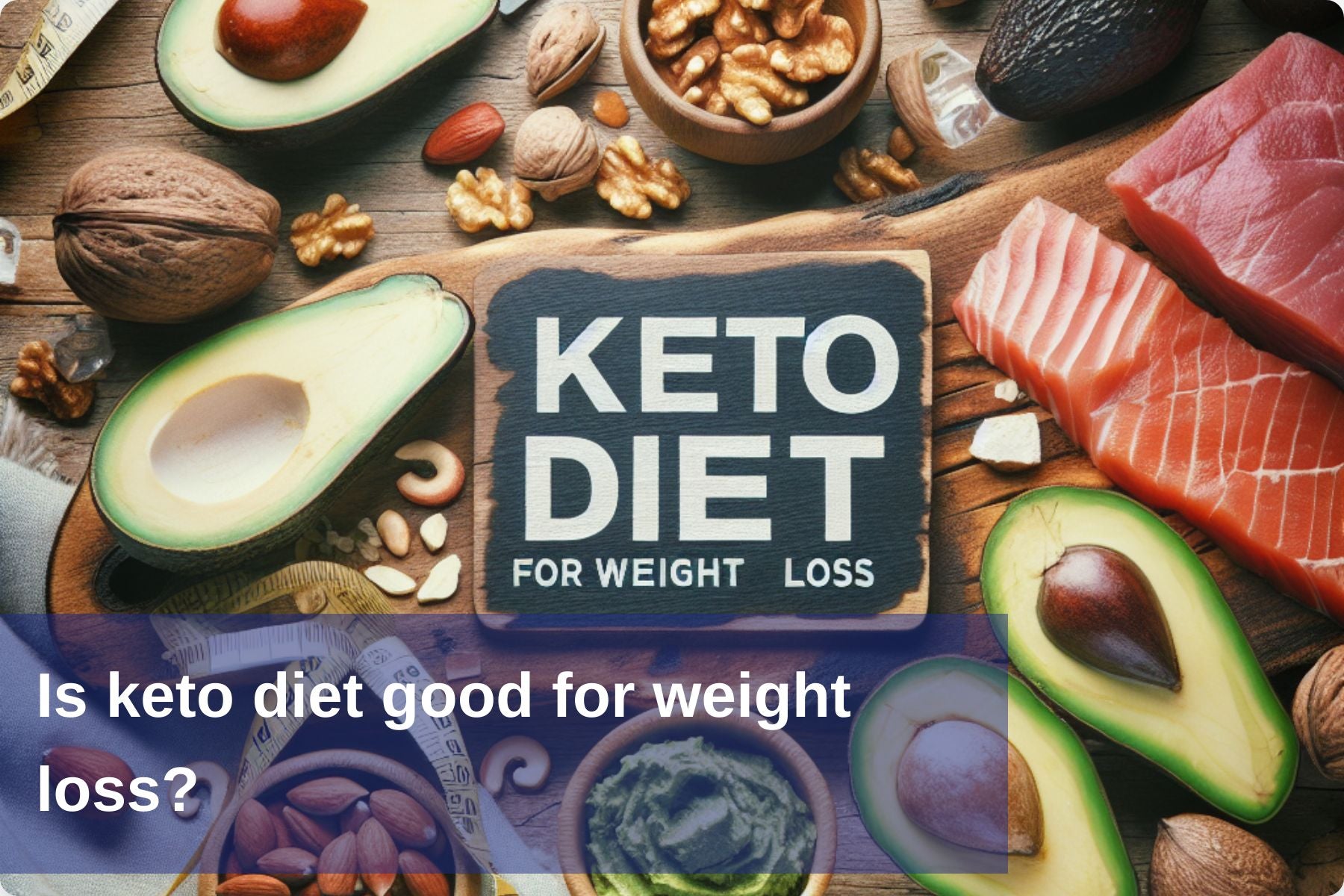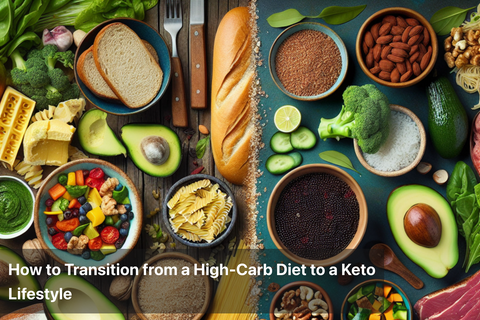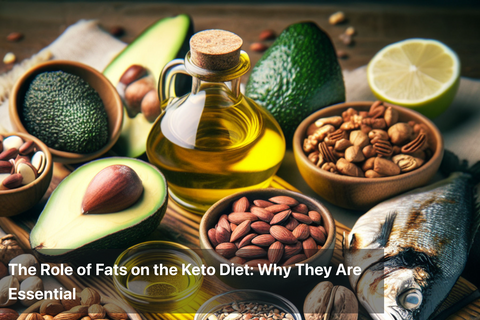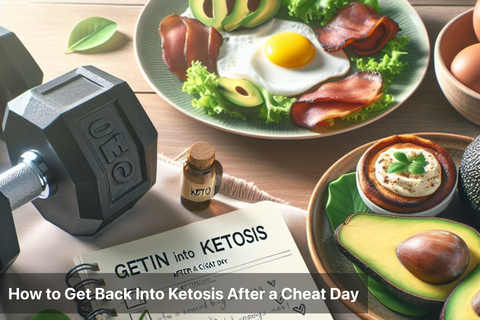
Is keto diet good for weight loss?
The ketogenic, or keto, diet has become very popular in recent years. This low-carb, high-fat diet is meant to put your body into ketosis - a state where you burn fat instead of carbs for energy. But does it really lead to weight loss?
In short, the keto diet severely reduces your carb intake and replaces it with fats. This metabolic state has been shown to promote weight loss. But many wonder if the keto diet sustainably and safely leads to weight reduction over time.
Supporters claim that by limiting carbs, your body starts burning stored fat for fuel, which can quickly shed pounds on the scale. However, it's important to understand the mechanisms and effectiveness of this process to see if it works long-term.
As we unpack how the keto diet works, we will evaluate its ability to deliver lasting weight management. Does it live up to its renown for burning fat fast? Let's break down the science and uncover the realities behind the keto diet and its impact on weight.

Understanding the Keto Diet
-
Definition: A high-fat, low-carbohydrate diet designed to put the body into a state of ketosis.
-
Ketosis: A metabolic state where the body burns fat for fuel instead of carbohydrates.
-
Macronutrient Ratio: Typically consists of about 70-80% fat, 20-25% protein, and 5-10% carbohydrates.
-
Carb Limit: Usually restricts carbohydrate intake to around 20-50 grams per day.
-
Foods to Eat: Includes meats, fatty fish, eggs, butter, nuts, seeds, healthy oils, avocados, and low-carb vegetables.
-
Foods to Avoid: Sugary foods, grains, fruits (except berries in moderation), beans, legumes, root vegetables, and high-carb sauces.
-
Health Benefits: May include weight loss, improved blood sugar control, increased energy, and better mental focus.
-
Potential Side Effects: Initial "keto flu" (headaches, fatigue, nausea), nutrient deficiencies, constipation, and bad breath.
-
Medical Uses: Originally developed to help manage epilepsy, also researched for potential benefits in diabetes, cancer, and neurodegenerative diseases.
-
Sustainability: May be challenging to maintain long-term due to restrictive nature.
Keto Diet x Weight Loss
-
Reduced Appetite: High-fat and protein content can increase satiety, helping to reduce overall calorie intake.
-
Increased Fat Burning: Promotes the use of stored fat as a primary energy source due to reduced carbohydrate intake.
-
Improved Insulin Sensitivity: Lower carb intake can lead to lower insulin levels, aiding in fat loss.
-
Water Weight Loss: Initial weight loss often includes a significant amount of water weight, providing quick visible results.
-
Muscle Preservation: Adequate protein intake can help preserve lean muscle mass during weight loss.
-
Metabolic Advantage: Some studies suggest that ketosis may increase the body’s metabolic rate, aiding in faster fat burning.
-
Reduced Sugar Cravings: Limiting carbs can help reduce sugar cravings, making it easier to stick to the diet.
-
Energy Levels: Consistent energy levels from fat metabolism may enhance physical activity, contributing to weight loss.
-
Simplified Eating: Restrictive nature can simplify food choices, reducing the chances of overeating.
-
Sustainability: While effective for many, the restrictive nature of the diet may make long-term adherence challenging for some people.
Implementing the Keto Diet
|
Food Item |
Calories (per 100g) |
Fat (g) |
Protein (g) |
Carbohydrates (g) |
Fiber (g) |
Net Carbs (g) |
|---|---|---|---|---|---|---|
|
Avocado |
160 |
15 |
2 |
9 |
7 |
2 |
|
Eggs |
155 |
11 |
13 |
1.1 |
0 |
1.1 |
|
Salmon |
208 |
13 |
20 |
0 |
0 |
0 |
|
Chicken Breast |
165 |
3.6 |
31 |
0 |
0 |
0 |
|
Almonds |
579 |
50 |
21 |
22 |
12 |
10 |
|
Olive Oil |
884 |
100 |
0 |
0 |
0 |
0 |
|
Spinach |
23 |
0.4 |
2.9 |
3.6 |
2.2 |
1.4 |
|
Butter |
717 |
81 |
0.85 |
0.06 |
0 |
0.06 |
|
Greek Yogurt |
59 |
0.4 |
10 |
3.6 |
0 |
3.6 |
|
Raspberries |
52 |
0.7 |
1.2 |
11.9 |
6.5 |
5.4 |

Keto Diet: A Path to Effective Weight Loss?
The keto diet can be an effective weight loss strategy because it pushes your body to run on fat rather than carbs. But it requires truly understanding the fundamentals - severely reducing carbs and replacing them with healthy fats. Consult a doctor before starting keto.
The potential benefits like rapid weight loss and metabolic changes are clear to many keto followers. However real downsides exist too, like safety concerns, "keto flu" transitions, nutrient deficiencies, and the very challenging dietary restrictions.
Customizing the diet through strategic meal planning and finding low-carb substitutions for regional cuisine can make keto more sustainable. Listening to your body and energy needs also matters - like possibly carb cycling around workouts. Incorporating keto-friendly foods and beverages is part of the journey. But choose options aligned with keto principles - not just trendy drinks or snacks claiming "keto."
This Blog post is an initiative by Lo! Foods, to provide accurate and Nutritionist / Doctor approved information related to Health. Lo! Foods is India's leading brand for Everyday Functional Foods. Foods designed for specific Health conditions or Needs. Lo! Foods also runs India's largest range of Low Carb Healthy Cloud Kitchens, under the brand names of Lo!, ProteinChef, ATH (All Things Healthy) and DiabeSmart.













Leave a comment
Your email address will not be published.